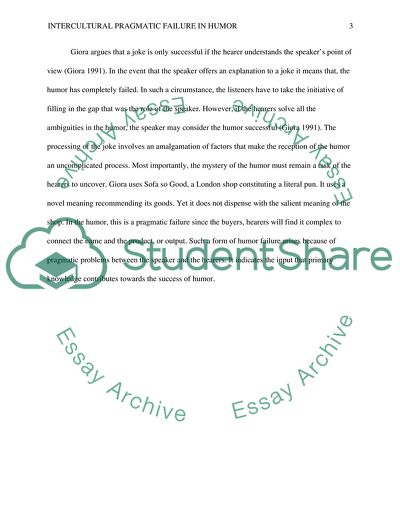Cite this document
(Intercultural Pragmatic Failure in Humor Literature review Example | Topics and Well Written Essays - 2250 words, n.d.)
Intercultural Pragmatic Failure in Humor Literature review Example | Topics and Well Written Essays - 2250 words. https://studentshare.org/humanitarian/1852108-intercultural-pragmatic-failure-in-humor
Intercultural Pragmatic Failure in Humor Literature review Example | Topics and Well Written Essays - 2250 words. https://studentshare.org/humanitarian/1852108-intercultural-pragmatic-failure-in-humor
(Intercultural Pragmatic Failure in Humor Literature Review Example | Topics and Well Written Essays - 2250 Words)
Intercultural Pragmatic Failure in Humor Literature Review Example | Topics and Well Written Essays - 2250 Words. https://studentshare.org/humanitarian/1852108-intercultural-pragmatic-failure-in-humor.
Intercultural Pragmatic Failure in Humor Literature Review Example | Topics and Well Written Essays - 2250 Words. https://studentshare.org/humanitarian/1852108-intercultural-pragmatic-failure-in-humor.
“Intercultural Pragmatic Failure in Humor Literature Review Example | Topics and Well Written Essays - 2250 Words”. https://studentshare.org/humanitarian/1852108-intercultural-pragmatic-failure-in-humor.


